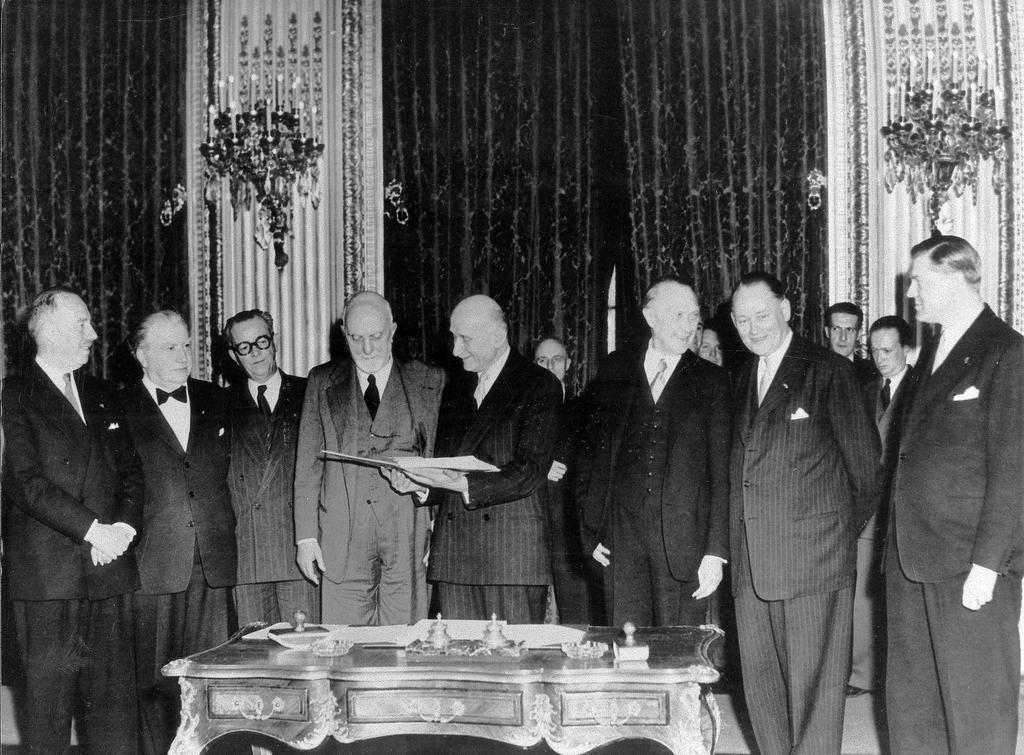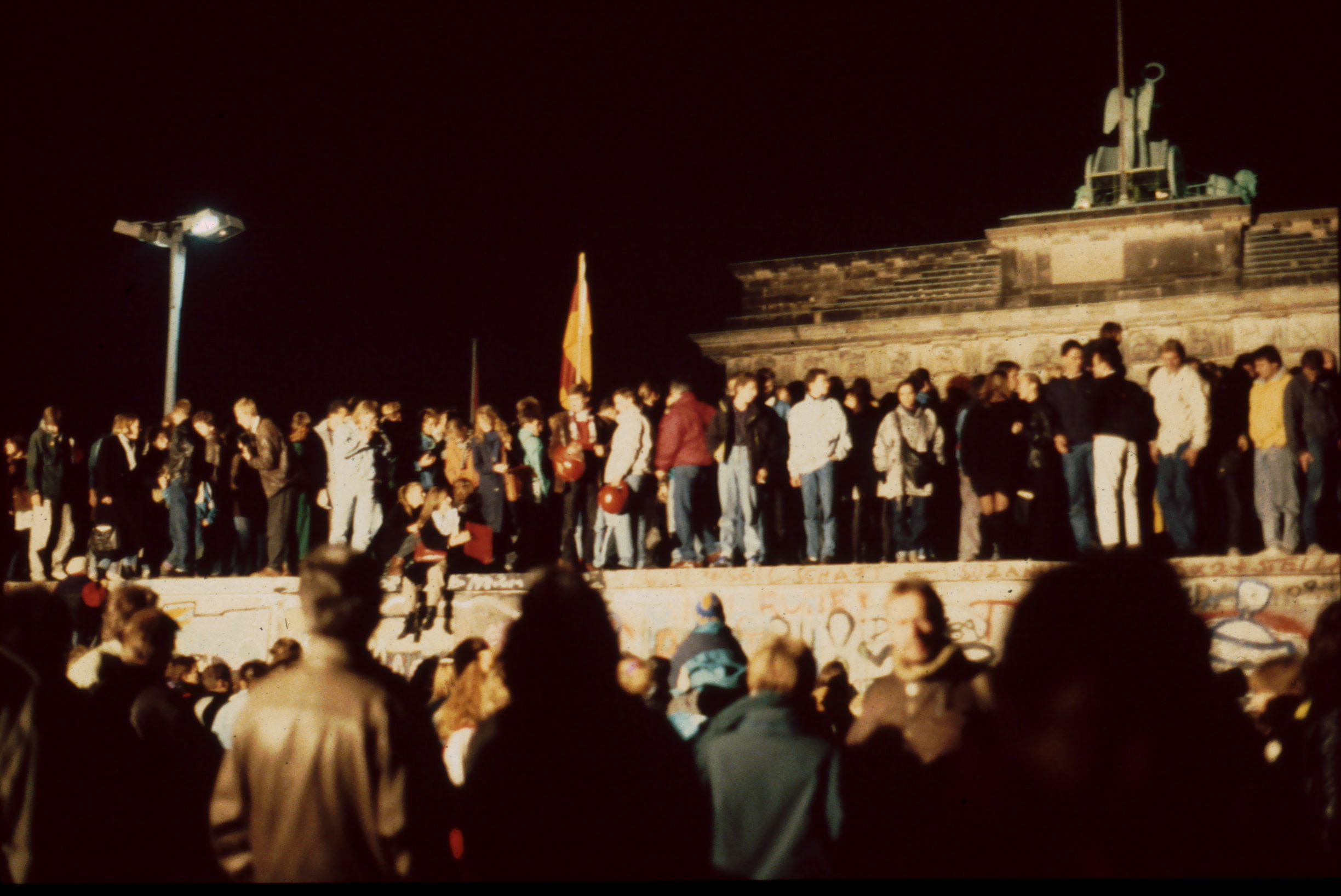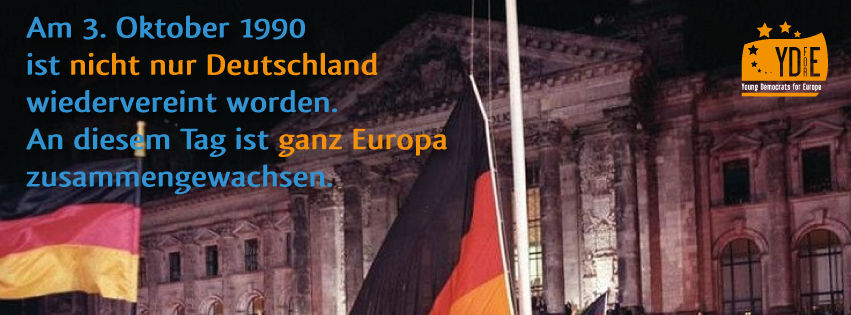De l’actualité de la CECA
La fédération des Jeunes démocrates Alsace, membre des Jeunes démocrates européens, a publié un communiqué pour les 70 ans de la Communauté européenne du charbon et de l’acier (CECA), nous nous faisons l’écho de leurs propositions intéressantes :
Petit événement pour les férus d’histoire, les « eurobéats » ou plus simplement ceux qui ont un vague souvenir de leurs cours d’histoire-géographie, la Communauté européenne du charbon et de l‘acier (CECA) fête ses 70 ans. Ou plutôt, aurait fêté, car, disons-le d’emblée, la CECA n’existe plus. Elle est fondue cette communauté de 27 États européens que l’on appelle aujourd’hui Union européenne. Alors, pourquoi s’épancher sur ce vieux machin dont tant le nom « communauté » que le sujet « le charbon et l’acier » appartiennent au passé ? Parce que la CECA, c’est un esprit bien particulier qui consacre la réalité du projet européen tel que nous le connaissons.
Contrepied des révolutionnaires fédéralistes qui voulaient un État européen tout de suite et maintenant, la CECA vise à construite l’Europe par des « réalisations concrètes créant d’abord des solidarités de fait ». En résumé, plutôt que de signer une convention internationale qui interdirait la guerre, la CECA souhaite la rendre impossible : en plaçant sous une autorité commune, indépendante de ses États membres, la production de ressources indispensables pour faire la guerre, les six États européens signataires du traité ouvrent les conditions d’une paix qui perdure jusqu’à l’écriture de ces lignes.
L’idée, d’une simplicité évidente, est dès lors d’une efficacité redoutable. Certains s’y opposent, d’autres l’applaudissent, mais tous comprennent ce qui est en jeu. Sa descendante directe, l’Union européenne, pourrait bien s’en inspirer, et ce à plusieurs titres :
- Tout d’abord, la CECA s’est construite autour d’un objectif, faire la paix, qui a débouché sur une proposition politique : créer une institution européenne chargée de gérer la production et l’écoulement de matières stratégiques. Et c’est tout. Il n’a pas été question d’incarnation politique, de guerre d’égo ou de rapport de forces entre institutions européennes. Des États volontaires se sont accordés pour déléguer une partie de leur souveraineté, le projet s’est ensuite mis en œuvre.
- Ensuite concernant les parties prenantes : tout le monde a été invité, seuls les volontaires ont participé. C’est un enseignement fort de l’esprit de la CECA, viendront d’abord ceux qui le souhaitent, tout en laissant la porte ouverte pour les suivants. Si l’Union européenne est empêtrée dans des conflits internes, alors les États volontaires doivent s’engager et si nécessaire dépasser le cadre actuel. Les limites de l’Union européenne sont celles que les États ont bien voulues se fixer et qu’ils acceptent de respecter, on ne peut craindre de devoir les dépasser.
- Sur les ressources, propres : la CECA prélevait directement une taxe sur les producteurs de charbon et d’acier, sans alignement préalable des taxes nationales. À l’heure des États frugaux, des sommets marathons pour s’accorder sur la contribution des États membres au budget de l’Union européenne, la possibilité pour l’institution d’assumer son financement de manière autonome parait révolutionnaire, elle ne l’était pourtant pas il y a soixante-dix ans.
- Enfin, sur les finalités : la CECA fut conçue comme une première coopération qui en appellerait d’autres. Si l’Union européenne est une conséquence directe et une réussite majeure de la CECA, rien ne la dispose à être son aboutissement. La mécanique enclenchée par la CECA s’est figée ces dernières années. Toute révision des traités est interprétée comme un affaiblissement d’une institution pourtant critiquée, comme si de ne pas parler des limites d’un régime allait le protéger de sa chute. La CECA n’avait pas prévue l’Union européenne, elle avait en revanche prévue un avenir commun pour les Européens.
Dès lors, l’esprit de la CECA nous est bien utile. Nous, Jeunes démocrates Alsace, croyons que le projet européen sera revigoré par des actions concrètes, autofinancées, prises par des États volontaires qui s’engagent pour un avenir meilleur de leurs citoyens fait sens aujourd’hui. Alors que l’épidémie de la Covid-19 a été un moyen d’avancer ensemble, à la fois sur la gestion de la crise, mais aussi pour sa relance avec un instrument de dette commune, il convient de laisser l’imagination des citoyens et de leurs représentants libres de proposer une nouvelle étape de la construction européenne. Le lancement, au lendemain des 70 ans de la CECA, d’une plateforme de consultation des citoyens dans le cadre de la Conférence sur l’avenir de l’Europe et à ce titre une formidable opportunité dont nous devons nous saisir. Mais si le cadre se trouvait trop restreint, ou la volonté politique des 27 États membres trop tenue, alors il nous faudra prendre nos responsabilités et concevoir ensemble la prochaine étape d’un projet pour les Européens.




